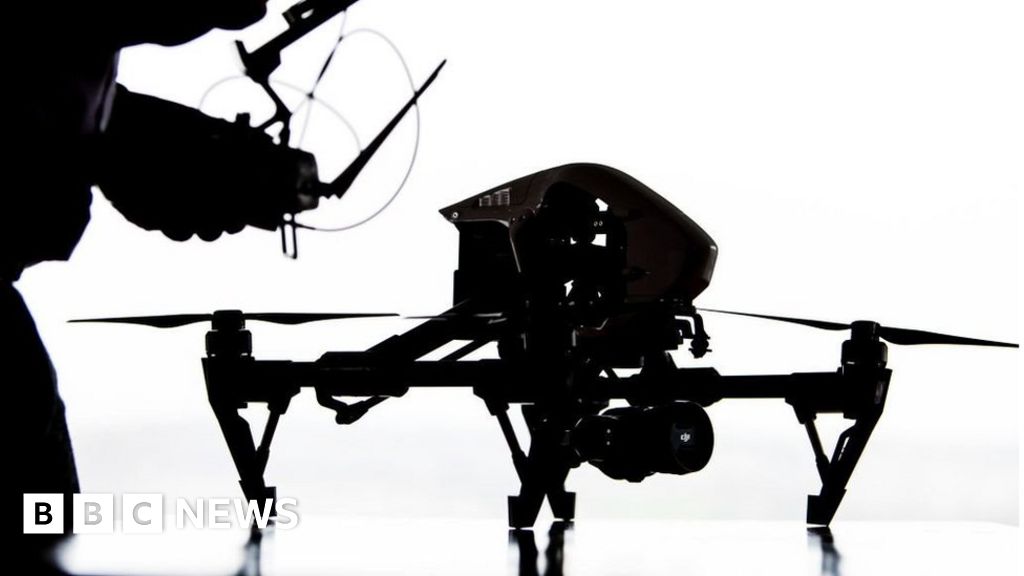US Warns Of Threat From Chinese Drone Companies

 Image copyright
Getty Images
Image copyright
Getty Images
The US government has issued an alert warning that Chinese-made drones could pose a cyber-espionage risk to American businesses and other organisations that use them.
The notice added that those using the flying aircraft for tasks related to national security or critical infrastructure were most at risk.
The warning does not refer to a specific company.
But market-leader DJI said it had taken steps to keep its clients' data secure.
"We give customers full and complete control over how their data is collected, stored, and transmitted," the firm said in a statement.
"For government and critical infrastructure customers that require additional assurances, we provide drones that do not transfer data to DJI or via the internet, and our customers can enable all the precautions DHS [Department of Homeland Security] recommends."
DJI accounts for more than 70% of the US market in drones costing more than $500, according to research firm Skylogic.
Yuneec - the second bestselling Chinese manufacturer - has also said that it gives users full control of their data.
"All our UAV [unmanned aerial vehicles] do not share telemetry or visual data with internal or external parties," said Chris Huhn, the firm's vice president of business development.
"Regardless of who you are - public authority, company or private individual - the drone data of your Yuneec drone always remains yours."
The notice was issued on Monday by the US's Cybersecurity and Infrastructure Security Agency, according to CNN, which was first to report the development.
"The United States government has strong concerns about any technology product that takes American data into the territory of an authoritarian state that permits its intelligence services to have unfettered access to that data or otherwise abuses that access," it quoted the memo as saying.
"China imposes unusually stringent obligations on its citizens to support national intelligence activities."
It is not the first time the US has raised such concerns.
In August 2017, the US Army prohibited troops from using DJI's drones because of unspecified cyber-security concerns.
The same month, the US Immigration and Customs Enforcement (Ice) agency said it suspected DJI was "providing US critical infrastructure and law enforcement data to the Chinese government".
DJI reacted at the time by saying it only collected flight logs and captured images if users opted to share them, but it also introduced a privacy mode that it said prevented any data being uploaded to the internet.
Yuneec has also taken steps to reassure government clients and other security-conscious customers. Last year, it teamed up with a US-based software and cloud storage provider to provide "trusted solutions".
The timing of the latest warning came days after the Trump administration imposed restrictions on US firms using and providing technology to Huawei, another Shenzhen-based tech firm. Washington has cited concerns that Beijing could compel the telecoms equipment provider to help it spy on and otherwise attack countries that use its products - something the Chinese Communist Party and Huawei itself have denied.
That has led to speculation that Chinese drone-makers could be next to face an official ban.
But that could prove disruptive to a range of public agencies.
Last week, a report from the American Association of State Highway and Transportation Officials highlighted that all 50 of the US's states were now using drones in some official capacity and that 36 employed certified drone pilots.
Tasks involved range from road and bridge inspections, it said, to creating complex farming programmes.
From Chip War To Cloud War: The Next Frontier In Global Tech Competition
The global chip war, characterized by intense competition among nations and corporations for supremacy in semiconductor ... Read more
The High Stakes Of Tech Regulation: Security Risks And Market Dynamics
The influence of tech giants in the global economy continues to grow, raising crucial questions about how to balance sec... Read more
The Tyranny Of Instagram Interiors: Why It's Time To Break Free From Algorithm-Driven Aesthetics
Instagram has become a dominant force in shaping interior design trends, offering a seemingly endless stream of inspirat... Read more
The Data Crunch In AI: Strategies For Sustainability
Exploring solutions to the imminent exhaustion of internet data for AI training.As the artificial intelligence (AI) indu... Read more
Google Abandons Four-Year Effort To Remove Cookies From Chrome Browser
After four years of dedicated effort, Google has decided to abandon its plan to remove third-party cookies from its Chro... Read more
LinkedIn Embraces AI And Gamification To Drive User Engagement And Revenue
In an effort to tackle slowing revenue growth and enhance user engagement, LinkedIn is turning to artificial intelligenc... Read more

